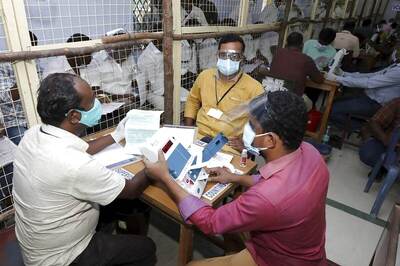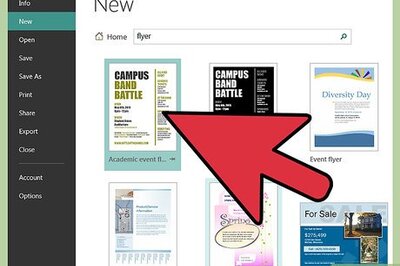
views
The Supreme Court on Thursday expressed concern over encroachment on public lands across the country and observed this is a ”sad story” that is going on for the last 75 years and major cities have ”turned into slums”. The apex court observed that the primary responsibility of ensuring that there is no encroachment on any property, be it private, government or public, is that of the local authority and they must activate themselves to deal with it.
”It is time that the local government really wakes up to the situation because one encroachment is removed, another place the same encroachment shifts there and they will also have other persons who are manipulating this and they will be taking advantage of the rehabilitation. That is the sad story of this country,” a bench headed by Justice A M Khanwilkar said. ”And, it is ultimately taxpayers’ money which goes down the drain,” said the bench, also comprising justices Dinesh Maheshwari and C T Ravikumar.
The top court was hearing two separate pleas which raised issues related to the removal of encroachment from Railway land in the states of Gujarat and Haryana. The bench said encroachment on public land is happening everywhere and the problem will have to be resolved. ”Therefore, all major cities have turned into slums. Look at any city, there may be exception we don’t know. Chandigarh is said, is exception but again there are issues in Chandigarh also,” it said.
Additional Solicitor General K M Nataraj, appearing for the Railways, told the bench that the authority would take action in this regard across the country. ”That is happening everywhere. Let us rise to the reality. The problem has to be resolved and how to resolve it, the government concerned has to take that responsibility,” the top court said. ”The primary responsibility of ensuing that there is no encroachment on any property, private or government or public property, is that of the local government,” it said, adding, ”This is a sad story going on for last 75 years”. The top court observed that the Railways is ”equally responsible” for ensuring that there is no encroachment on its properties and it must initiate action against unauthorised occupants immediately after the issue is brought to its notice.
It noted that the Surat-Udhna to Jalgaon Railway line project in Gujarat is still incomplete because of unauthorised structures standing on the railway property to the extent of 2.65 kilometre. The top court directed that the Railways may issue notices to the occupants of these unauthorised structures, falling within the stretch which is immediately required for commencing the remaining project work in Gujarat, and give two weeks time to the occupants to vacate the premises. The top court said that Rs 2,000 per month as solatium for a period of six months be paid to the occupants of an unauthorised structure which would be removed in the demolition action.
It said the solatium shall be initially paid by the collector of the district concerned and it shall be shared equally by the Railways, municipal corporation concerned and the state government. In the Gujarat matter, the petitioners had earlier told the apex court that the state high court had vacated its July 23, 2014, interim order of status quo and permitted the Western Railways to go ahead with the Surat-Udhna up to Jalgaon third railway line project.
After the high court order, the petitioners moved the top court which granted status quo on the demolition of these ’jhuggis’ in Gujarat. The other plea relates to the demolition of ’jhuggis’ near the railway tracks at Faridabad in Haryana.
Read all the Latest India News here




















Comments
0 comment